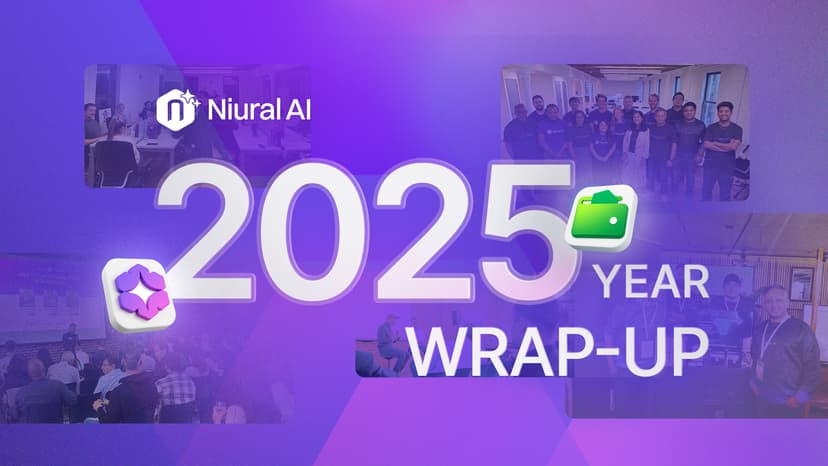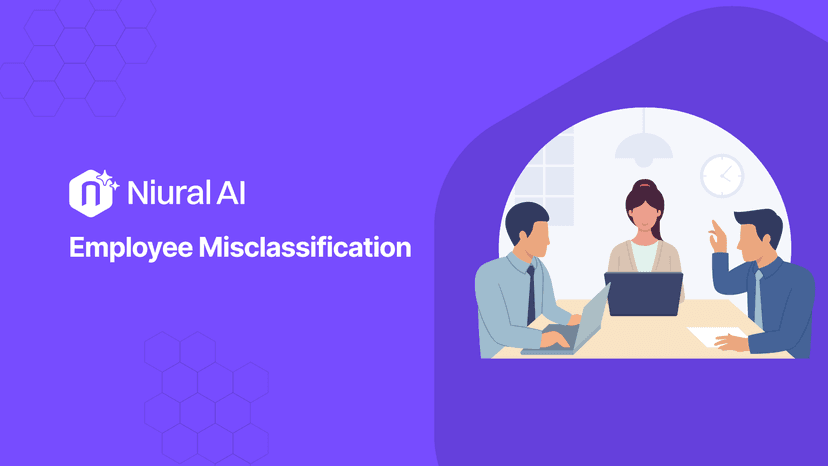The "Big, Beautiful Bill," introduced in the 119th Congress, proposes a wide-reaching update to U.S. tax and compliance structures. While the full scope of its impact is still being assessed, what's clear is that it introduces meaningful changes to how companies manage payroll, taxes, and worker classification. At Niural, we see these potential updates not as a compliance burden but as a strategic opportunity for companies using AI-native tools built for agility.
1. Navigating Payroll Shifts with Zero Downtime
The bill's "No Tax on Tips" and "No Tax on Overtime" provisions eliminate federal income tax on these earnings through 2028, while Social Security and Medicare taxes continue to apply. Employers might need to separately identify and report both tips and overtime wages on Form W-2, creating new administrative requirements that demand sophisticated tracking capabilities.
Business Impact:
The operational burden of maintaining multistate payroll systems can become particularly acute under these requirements. Each jurisdiction may interpret federal changes differently, creating complex compliance obligations.
How Niural Helps:
- Niural auto-updates payroll logic across all jurisdictions.
- We instantly incorporate new tax rules and reporting requirements without manual configuration or system downtime.
- When the IRS releases updated withholding tables, our platform adapts automatically, ensuring continuous compliance while maintaining operational efficiency.

Niural ensures you stay fully compliant with tax laws—no stress, no guesswork. (Source: Pexels)
2. Corporate Tax Reform and Its Strategic Ripple Effects
The bill enhances the qualified business income deduction for pass-through entities to 23%, providing unprecedented certainty for long-term business planning. This stability will allow companies to make strategic decisions about entity structure and workforce composition with confidence in the underlying tax framework.
Business Impact:
The enhanced QBI deduction can benefit 26 million small businesses structured as pass-through entities. The bill's reinstatement of full expensing for capital investments through 2029 can create powerful incentives for business modernization, allowing companies to immediately deduct equipment, machinery, and factory construction costs.
How Niural Helps:
- Businesses using Niural's EOR or PEO services can take advantage of new cost optimization opportunities created by recent tax changes.
- Our system dynamically models the total cost of employment under the new tax conditions.
- This enables employers to choose the most cost-efficient ways to engage talent while accounting for all relevant tax implications.
3. Global Tax Realignment – Localized Insight at Scale
The bill presents modifications to Global Intangible Low-Taxed Income (GILTI) provisions, while introducing a Foreign Corporate Retaliation Tax. These changes fundamentally alter the economics of international business operations and cross-border workforce management.
Business Impact:
For companies with global contractor or employee bases, the bill's provisions create complexities requiring sophisticated analysis. Modified GILTI rules may change the relative attractiveness of different international jurisdictions, while the new retaliation tax could impact companies with significant foreign corporate relationships.
How Niural Helps:
- Our clients with global contractor or employee bases benefit from cost modeling tools that clarify the impact of cross-border taxation.
- Niural optimizes country-specific hiring suggestions based on net cost after taxes.
- The system incorporates both direct employment costs and the broader tax implications of various workforce deployment strategies.
4. Tax Complexity Meets AI Simplicity
The bill introduces multiple tax layers with intricate eligibility matrices involving income thresholds, occupation classifications, and time-based limitations. The threshold for "highly compensated employees," determination of "customarily tipped occupations," and Fair Labor Standards Act requirements create decision trees requiring sophisticated automation.
Business Impact:
The bill's temporary nature adds complexity, with many provisions expiring at the end of 2028. Traditional payroll systems handle such complexity through manual processes and human intervention, creating significant risks of human error when dealing with modern business operations' volume and velocity.
How Niural Helps:
- Niural's AI-driven tax engine ensures compliance, documentation, and audit trails for all tax-related decisions.
- The system continuously monitors employee status, income levels, and work patterns.
- This monitoring guarantees the accurate application of all relevant tax provisions.
- Companies gain confidence in their compliance posture through these features.
5. Classification Crackdown: Staying Ahead of Compliance Risks
While the bill doesn't explicitly introduce new worker classification enforcement, its provisions around tips and overtime create new audit triggers that can increase classification scrutiny risk. The legislation's emphasis on preventing income misclassification, combined with substantial tax benefits for properly classified workers, can create an environment where the IRS will likely intensify its focus on worker classification compliance.
Business Impact:
The stakes for misclassification continue escalating, with potential penalties including back taxes, interest, and fines. Beyond immediate financial impact, classification audits consume significant management time and resources, disrupting business operations.
How Niural Helps:
- Niural's Misclassification AI is essential for proactively assessing and justifying contractor vs. employee status.
- The tool delivers real-time worker status audits.
- It helps reduce legal and tax exposure before audits by the IRS or DOL take place.

No more waiting on paperwork—Niural simplifies your filing process with automation. (Source: Pexels)
6. Unlocking Incentives Without the Paperwork
The bill introduces comprehensive new business tax credits and enhanced deductions creating significant cost-saving opportunities. New scholarship tax credits and expanded Health Savings Account provisions can create additional optimization opportunities.
Business Impact:
The challenge lies in eligibility complexity and administrative burden of tracking and claiming benefits. Each incentive has specific qualification criteria, income limitations, and documentation requirements that must be continuously monitored.
How Niural Helps:
- Niural's payroll system flags eligibility for rebates or credits based on employee data.
- It helps automate the filing process to ensure companies capture all available benefits.
- The system reduces administrative burden and ensures accurate, timely submissions.
Top 5 Facts to Know About the Big, Beautiful Bill
1. Corporate tax rate revised: TCJA rates made permanent with QBI deduction increased from 20% to 23%
2. Payroll tax changes: Tips and overtime exempt from federal income tax through 2028, requiring separate W-2 reporting
3. Global minimum tax implemented: Modified GILTI provisions with new Foreign Corporate Retaliation Tax
4. Enhanced enforcement focus: Increased scrutiny expected on worker classification compliance
5. New credits introduced: Enhanced Child Tax Credit, scholarship credits, and expanded HSA provisions through 2028
The Bottom Line for You
Whether it's a major tax code overhaul or targeted reform, Niural provides
- Real-time adaptation
- Error-free compliance
- Strategic guidance using data-driven insights.
The bill's complex implementation requirements underscore the critical importance of having systems that adapt instantly to regulatory changes without disrupting business operations.
This turns a complex tax bill into a competitive advantage—because with Niural, you don't just stay compliant. You stay ahead. Learn how Niural can help your company navigate these changes with clarity and confidence. Book your demo today!



